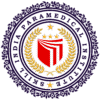Masters in Physiotherapy (MPT) Course: Comprehensive Overview
The Master of Physiotherapy (MPT) is a postgraduate course that delves deeper into the field of physiotherapy, equipping students with advanced clinical knowledge, research skills, and expertise in rehabilitation. The MPT program is designed for students who wish to specialize in various branches of physiotherapy, including orthopedics, neurology, sports, cardiopulmonary, pediatrics, and more. It allows graduates to become experts in the evaluation, diagnosis, and treatment of patients with physical disabilities or injuries.
1. What is the MPT Course?
The Master of Physiotherapy (MPT) is a 2-year postgraduate program that focuses on enhancing a student’s knowledge and skills in physiotherapy, with an emphasis on clinical practice, research, and specialization in various areas of the field. This course not only strengthens a student’s foundational physiotherapy skills but also introduces advanced treatment techniques, clinical reasoning, and rehabilitation methods.
2. Course Duration
The MPT program is typically completed over a period of 2 years, divided into 4 semesters. Each semester involves both theoretical learning and practical training, along with research work or projects.
3. Eligibility Criteria
To be eligible for admission to the MPT course, candidates must meet the following criteria:
- Educational Qualification: A Bachelor’s degree in Physiotherapy (BPT) from a recognized university with at least 50% aggregate marks.
- Internship: Completion of a 6-month clinical internship post-BPT, which is mandatory for admission to the MPT course.
- Entrance Exams: Some universities or colleges may require candidates to clear entrance exams for admission to the MPT program.
4. Specializations in MPT
The MPT program offers several specializations, allowing students to focus on their area of interest. Common specializations include:
- MPT in Orthopedics: Focuses on treating musculoskeletal disorders and rehabilitation after injuries, fractures, and surgeries.
- MPT in Neurology: Specializes in the treatment of neurological conditions such as strokes, Parkinson’s disease, and spinal cord injuries.
- MPT in Sports Physiotherapy: Concentrates on injury prevention, treatment, and rehabilitation for athletes and active individuals.
- MPT in Cardiopulmonary Physiotherapy: Deals with the rehabilitation of patients with heart and lung conditions, including post-operative recovery.
- MPT in Pediatrics: Focuses on the treatment of physical disabilities and developmental issues in children.
- MPT in Geriatrics: Specializes in providing care and rehabilitation for elderly patients dealing with age-related conditions.
Each specialization equips students with expertise in handling specific patient populations and using tailored rehabilitation techniques.
5. Course Curriculum
The MPT curriculum is designed to provide in-depth knowledge of physiotherapy and its applications, focusing on both theory and clinical practice. Here’s an overview of the subjects typically covered in the MPT course:
Core Subjects:
- Advanced Physiotherapy Techniques: Understanding the latest therapeutic interventions, including manual therapy, electrotherapy, and exercise therapy.
- Biomechanics and Kinesiology: Detailed study of human movement, joint mechanics, and the effects of physical activities on the body.
- Physiotherapy in Rehabilitation: Approaches to rehabilitation for patients with chronic conditions or post-surgical recovery.
- Evidence-Based Practice: Learning how to integrate clinical expertise with research evidence to optimize patient care.
- Research Methodology: Training in research design, data collection, and analysis for conducting clinical research in physiotherapy.
Specialization Subjects:
- Orthopedics: Post-operative care, fracture rehabilitation, sports injury management.
- Neurology: Stroke management, neurodevelopment techniques, neurorehabilitation.
- Cardiopulmonary: Pulmonary rehabilitation, post-operative cardiac care, breathing exercises.
- Pediatrics: Management of developmental disorders, cerebral palsy, and pediatric rehabilitation.
Clinical Practice and Internships:
Throughout the course, students are required to undergo clinical internships or hospital training in their respective specializations. This provides them with hands-on experience in patient diagnosis, treatment, and rehabilitation.
Research Project:
In the final year, students typically conduct research or complete a dissertation project on a physiotherapy-related topic of their choice. This is designed to enhance research skills and contribute to the field’s academic knowledge.
6. Skills Acquired During the MPT Course
By the end of the MPT program, graduates will have acquired several advanced skills, including:
- Clinical Decision-Making: Ability to assess and diagnose complex patient conditions and develop personalized treatment plans.
- Advanced Therapeutic Skills: Mastery of advanced manual therapy, electrotherapy, and rehabilitation techniques.
- Patient Communication and Counseling: Skills in communicating effectively with patients and their families, providing counseling and health education.
- Research and Analytical Skills: Proficiency in conducting clinical research, analyzing data, and applying findings to improve patient care.
- Leadership and Management: Knowledge in managing physiotherapy departments, clinics, or rehabilitation centers.
7. Career Opportunities after MPT
After completing the MPT course, graduates have numerous career options in both the clinical and academic sectors. Some potential career paths include:
Clinical Roles:
- Senior Physiotherapist: In hospitals, rehabilitation centers, or sports clinics.
- Specialized Physiotherapist: Depending on the specialization (orthopedic, neurological, pediatric, etc.).
- Rehabilitation Specialist: Working with post-surgical or trauma patients to aid in recovery.
- Sports Physiotherapist: Providing treatment and rehabilitation to athletes, either independently or as part of a sports team.
Academic and Research Roles:
- Lecturer/Professor: Teaching physiotherapy at academic institutions.
- Clinical Researcher: Conducting research in physiotherapy or rehabilitation science.
- Consultant: Advising healthcare organizations or sports teams on physiotherapy practices.
Entrepreneurial Roles:
- Clinic Owner: Many MPT graduates open their own physiotherapy clinics or rehabilitation centers.
- Private Practice: Some opt to work independently and provide physiotherapy services to patients.
Other Roles:
- Ergonomic Specialist: Advising companies on workplace safety and injury prevention.
- Public Health Expert: Working in government or non-profit sectors focusing on community health and rehabilitation programs.
8. Salary Prospects
The salary for an MPT graduate varies based on experience, specialization, and geographical location. The starting salary typically ranges from INR 3.5 lakhs to INR 6 lakhs per annum, with significant growth opportunities as one gains experience and expertise in the field. Senior physiotherapists or those with specialized skills can earn much more, particularly in private practice or as consultants.
9. Scope for Further Studies
After completing the MPT program, students can further their education through:
- Ph.D. in Physiotherapy: For those interested in academic roles or advanced research.
- Post-Doctoral Fellowships: Focused on research in specialized areas of physiotherapy.
- Specialization Certifications: In areas such as sports therapy, neurodevelopmental techniques, or cardiopulmonary rehabilitation.
Further education allows MPT graduates to become leaders in their field and contribute to advancements in physiotherapy and rehabilitation science.
10. Conclusion
The Master of Physiotherapy (MPT) is an excellent program for those looking to specialize in the field of physiotherapy and develop advanced clinical skills. With a wide range of career opportunities in clinical practice, research, education, and even entrepreneurship, MPT graduates are well-equipped to make significant contributions to healthcare. As healthcare continues to evolve and the demand for rehabilitation professionals grows, MPT graduates will find ample opportunities to grow and succeed in their careers.

